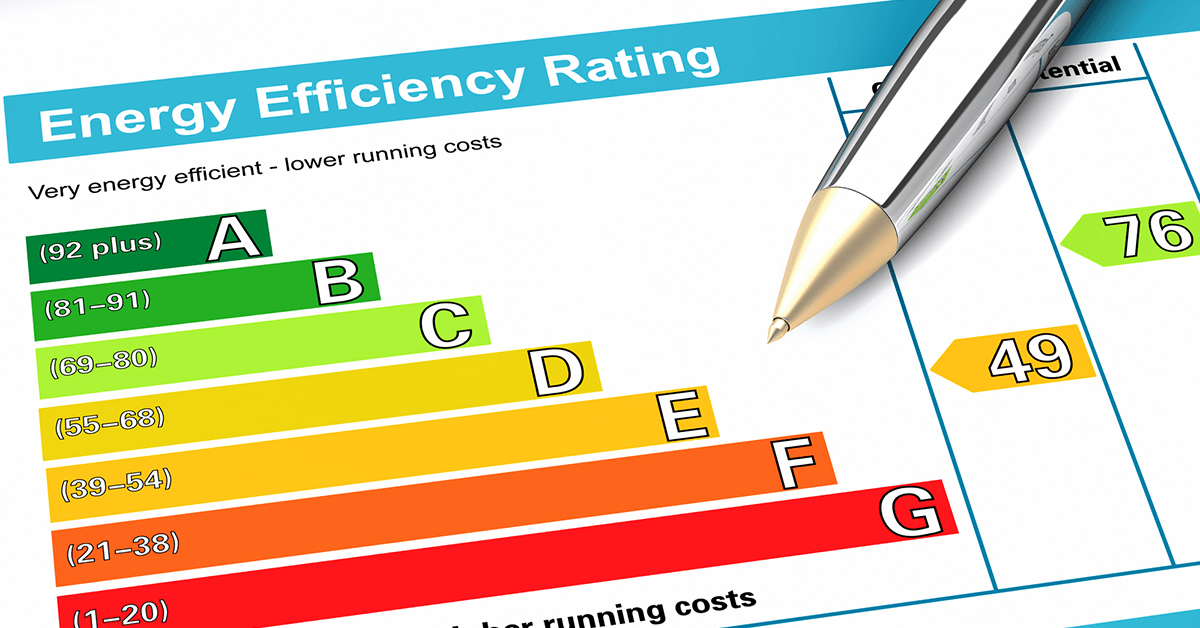
What is a Home Energy Rating and Why Does it Matter to Prospective Homebuyers?
There are more factors than just purchase price to consider when you’re budgeting for the cost of a new home. While most prospective homeowners do think about the additional cost of taxes, insurance, and sometimes even PMI (Private Mortgage Insurance), utility costs are often overlooked. Because utility costs haven’t historically been disclosed, evaluating how much energy it will take to run a new home can be challenging.
However, local and state governments nationwide have been adopting policies that require energy ratings or disclosures for residential dwellings. This information will greatly help potential homebuyers assess these costs and make informed decisions regarding energy-efficient upgrades. Areas with existing policies regarding energy ratings or disclosures are providing important data to help policymakers create uniform legislation over time.
An energy rating is given to a home after a variety of assessments are completed. While there are numerous rating schemes used in the U.S., the Home Energy Rating System (HERS) Index is the nationally recognized system for inspecting and calculating a home’s energy performance.
Like most rating methods, the HERS Index is determined through an assessment of your home’s energy consumption from heating, cooling, water heating, lights, and some appliances. The score derived from these assessments will give you, as a homeowner, an idea of how energy efficient your house is in comparison to similar homes. The lower your HERS Index score is, the more energy-efficient your home is.
Depending on where you live, you may be required to disclose this score publicly. Currently, twelve states have policies in place requiring energy ratings and disclosures. Various cities throughout the country have adopted their own policies requiring energy ratings and disclosures. Your REALTOR® can help you understand your area’s requirements.
Knowing the energy rating of a potential home will help you understand what kind of energy costs you can expect. During your home search, if you’re comparing two homes that are otherwise equal, knowing the HERS Index scores of those homes can help you understand which home will be a better value over time. As more cities and states move toward requiring the disclosure of energy ratings at the time of sale, the easier it will be for homebuyers to make informed comparisons of potential homes.
As a homeowner, knowing your HERS Index score can help you make smart energy upgrades to increase your energy savings or to give you a leg up if you plan to sell your home in the future. The HERS rating will tell you:
- Where and how energy is being lost and identify energy-wasting areas.
- Which systems in your home are not working efficiently.
- What measures can be taken to improve your energy efficiency.
- Where hidden problems may lie.
- Cost/benefit analysis for recommended improvements and expected ROI
Your home’s specific HERS Index score will reveal which energy upgrades make the most sense for you and your home. Overall, the National Association of REALTORS® 2020 Home Buyers and Sellers Generational Trends Report showed “heating and cooling costs were the most important environmental features for recent home buyers, with 35 percent finding these features very important.”
Additionally, the REALTOR® Magazine article What Greener Homes Are Made Of notes, “While some things—like low-VOC paint and energy-efficient lighting—are important no matter where one is located, other aspects of green building are more location-specific. Considerations differ for building in, say, Alaska versus Alabama.”
For instance, in Tennessee, where most homes have below-ground crawl spaces instead of basements, Alan Looney, president of Castle Homes in Brentwood, notes that it’s important to seal off crawl spaces and insulate them to promote energy efficiency. It’s important to be aware of the energy issues common to your area.
Legislation requiring homeowners to disclose their home’s energy rating will ultimately increase transparency about the costs of operating a home. This information will allow for informed purchasing decisions across the board.
Time to Focus on Affordable Housing
Taxes on real estate are not the answer. Sign the petition calling on Congress to address our country’s housing shortage.





